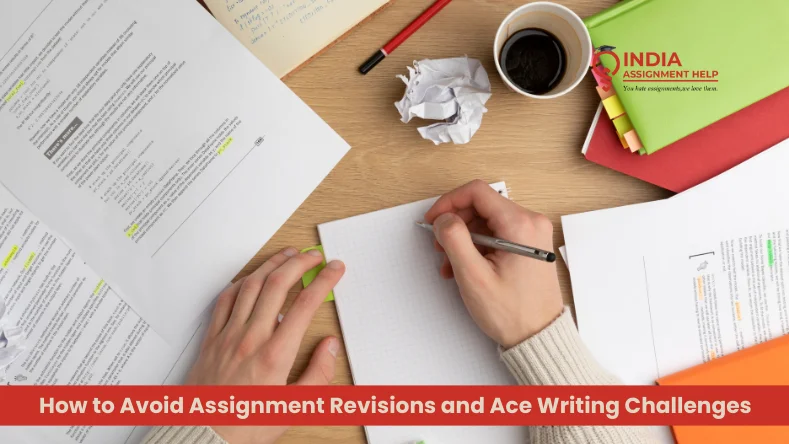How to Avoid Assignment Revisions and Ace Writing Challenges

As academic writers, it's a matter of concern to receive revisions from the quality team or from the client’s end. It can delay your work, impact your performance, and even significantly reduce your overall confidence. So, in order to avoid assignment revisions, ensure that your given tasks are delivered with top-notch quality. For this, you can seek assistance from assignment proofreaders and editing service providers who can quickly format your work and make changes wherever required.
How Can You Improve Your Assignment Quality?
In order to improve assignment quality, you should recognise the key areas that need the most attention. Those areas must be structured and formatted well so that you can achieve the desired scores for your assignments.
However, asking for help from effective assignment writing service providers can decrease the burden and give your work a professional touch. These professionals can be the best helpers in improving your work as they follow all the essential best practices of assignments. The list of such practices can be found below:
a. Format and Structure
- Plan Ahead: Create a clear outline based on the given rubric, allocating word counts to each section. This will help you stay organised, avoid missing any essential components, and minimise assignment revisions.
- Follow Guidelines: Adhere to the specified format, including the title page, headings, and subheadings. Pay attention to font, spacing, and page numbers.
- Include Essential Elements: Ensure your assignment has a well-structured introduction, body paragraphs, and a conclusion. Each section should serve a specific purpose and contribute to the overall coherence of your work in order to ace your assignment.
b. References
- Cite Credibly: Use reliable sources and cite them correctly according to the specified style (e.g., APA, MLA, Harvard). This demonstrates your research skills and avoids plagiarism.
- Avoid Over-Reliance: While references are crucial, don't rely solely on external sources. Incorporate your own insights and analysis to show your understanding of the topic.
c. Language and Clarity
- Keep it Simple: Use clear and concise language that is easy to understand. Avoid jargon or overly complex terms unless necessary.
- Proofread Carefully: Review your work for grammatical errors, typos, and inconsistencies. Proofreading ensures that your writing is polished and professional.
d. Following the Rubric
- Understand Requirements: Carefully read the rubric to fully understand the expectations for your assignment. Pay attention to key terms like "evaluate," "analyse," and "justify."
- Address All Points: Ensure that your work covers all the required elements outlined in the rubric. This will help you avoid missing any important points.
Some of the Additional Tips that can Help in Minimizing Assignment Revisions
Some of the assignment revision strategies that can help in reducing the chances of making several changes are listed below:
- Start Early: Give yourself ample time to research, write, and revise your assignment. This will reduce stress and increase the quality of your work.
- Seek Feedback: Don't hesitate to ask your professor or a writing tutor for feedback on your drafts. Their insights can help you identify areas for improvement.
- Learn from Mistakes: If you do receive revisions or lower grades, take the feedback as an opportunity to learn and grow. Analyse the reasons for the revisions and apply the lessons learned to your future assignments. This will help you in assignment grading improvement and may help you become your university topper.
Conclusion
In conclusion, following these best practices can significantly reduce the likelihood of revisions and ace your assignments. This can even help you in producing high-quality work that will impress clients and enhance your professional success.





